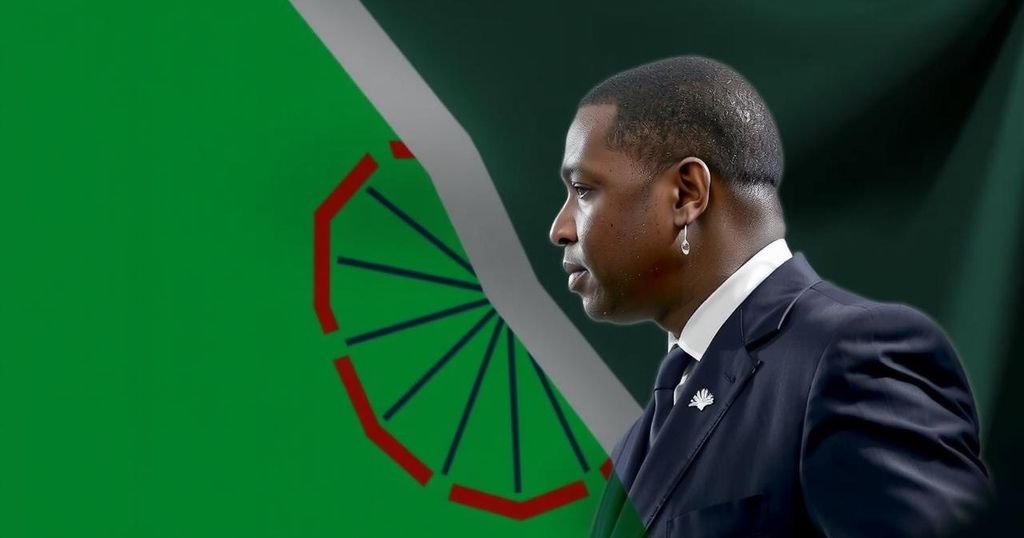Technology
AFRICA, BALTASAR, BALTASAR ENGONGA, BALTASAR ENGONGA EDJO, BLACK BEACH, CEMAC, COURT CASE, ENGONGA, EQUATORIAL GUINEA, FACEBOOK, GHANAWEB, HUMAN RIGHTS, JUSTICE, LEGAL, MALABO, MONEY LAUNDERING, NATIONAL FINANCIAL INVESTIGATION AGENCY, OBIANG, OSUNDEFE, REAL EQUATORIAL GUINEA
Jamal Walker
0 Comments
Equatorial Guinea Supreme Court Acquits Baltasar Engonga in Sex Scandal
The Supreme Court of Equatorial Guinea has dismissed charges against Baltasar Engonga, citing lack of evidence and the consensual nature of involved parties in intimate videos. Engonga plans to pursue legal action regarding the video’s leak, which compromised his privacy amidst serious corruption allegations. Prominent figures, including the First Lady and Prime Minister, are calling for improved protections against digital breaches and the safeguarding of personal dignity for women.
The Supreme Court of Equatorial Guinea has acquitted Baltasar Engonga, the former Director General of the National Financial Investigation Agency, of charges related to a high-profile sex scandal. The court dismissed all charges against him, attributing the decision to insufficient evidence and confirming that all parties involved in the intimate videos were consenting adults. Additionally, medical examinations indicated that there was no transfer of sexually transmitted diseases involved, reinforcing Engonga’s position of innocence. The scandal, which included the public dissemination of several intimate videos featuring Engonga with multiple prominent individuals’ spouses, has led to a mixed public reaction, with some husbands expressing gratitude for the revelation of hidden issues within their marriages.
Following his detention on October 25 for alleged embezzlement of state funds, Engonga faced a further invasion of privacy when intimate videos were circulated online, exacerbating his predicaments. The release of these videos appears to have stemmed from a breach of privacy during his imprisonment in Malabo’s notorious Black Beach prison. In a formal decree issued on November 4, the government articulated that Engonga’s conduct was not conducive to public office and sought to rehabilitate the national image alongside ongoing gender equality advancements.
The First Lady of Equatorial Guinea, Mrs. Obiang, has publicly urged for immediate protective measures for the rights and dignity of women in the country, highlighting the importance of creating a safe digital landscape. Moreover, Prime Minister Osa Nsue acknowledged the urgent need for legal frameworks to protect personal data and mitigate further privacy breaches, emphasizing the importance of educating the public about digital conduct.
In light of this scandal, Vice President Teodoro Nguema Obiang Mangue has mandated telecommunications authorities to address the rampant distribution of the videos, underscoring the detrimental impact on families. Furthermore, the government has instituted regulations restricting the sharing of multimedia content on messaging platforms, prompting public frustration as citizens navigate these new limitations in communication.
The Baltasar Engonga sex scandal highlights issues of personal privacy, public behavior, and legal accountability within Equatorial Guinea’s political framework. Engonga, before his arrest, executed crucial duties combating financial crimes in a nation plagued by corruption allegations. His controversial arrest pertaining to allegations of embezzlement and subsequent exposure through intimate videos underscore the delicate intersection of personal privacy and public scrutiny in the digital age. The fallout from this incident not only touches on gender issues but also questions the adequacy of legislation surrounding digital content sharing, privacy rights, and governmental accountability towards public figures.
In summary, the acquittal of Baltasar Engonga by the Supreme Court signifies a pivotal moment in Equatorial Guinea’s legal landscape regarding personal misconduct and privacy breaches. The subsequent public discourse initiated by high-profile individuals signals an increased awareness and necessity for structural reforms to enhance personal privacy protections. The case reflects broader societal issues within Equatorial Guinea and underscores the importance of legislative evolution in response to emerging digital threats.
Original Source: www.osundefender.com




Post Comment